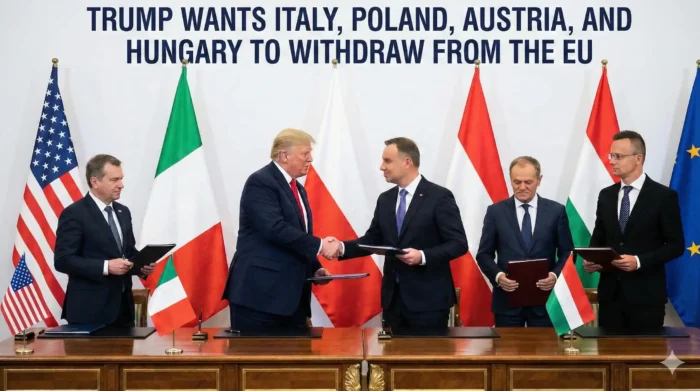In October, French President Emmanuel Macron announced plans to tackle what he called “Islamic separatism.” According to the BBC:
Speaking outside Paris on Friday, Mr Macron said “Islamist separatism” was a danger to France because it held its own laws above all others and “often results in the creation of a counter-society”. He said this form of sectarianism often translated into children being kept out of school, and the use of sporting, cultural and other community activities as a “pretext to teach principles that do not conform to the laws of the republic”. […] The measures announced by the president will form legislation that will go to parliament before the end of the year. They include:
- stricter monitoring of sports organisations and other associations so that they do not become a front for Islamist teaching
- an end to the system of imams being sent to France from abroad
- improved oversight of the financing of mosques
- home-schooling restricted
Much of Macron’s plan focused on limiting foreign influence and training a new generation of French imams. It will be difficult to implement, however, because France’s policy of militant secularism, laïcité, explicitly bars the state from interfering with private religious affairs. Thus, France would have to rely on the French Council of the Muslim Faith to implement the new laws, an Islamic umbrella organization that itself has a problematic relationship to foreign influence actors. According to an article in Foreign Policy:
Because the state itself can’t certify imams, for example, Macron would likely empower the French Council of the Muslim Faith (CFCM)—created by then-Interior Minister Nicolas Sarkozy in 2003—to do so. But empowering the CFCM would go against Macron’s stated objective of creating a French Islam in the place of a foreign-influenced one. Only a third of French Muslims have even heard of the CFCM, according to a 2016 survey; those who have criticize its opaque leadership structure and close ties to foreign powers.
The French Council of the Muslim Faith (Conseil Français Du Culte Musulman, CFCM) is an umbrella organization comprising members from different Islamic federations, many of which are tied to foreign and transnational influence actors, notably Morocco, Algeria, and Turkey, as well as the Global Muslim Brotherhood and the Tabligh movement. According to its statute, the 2019–2025 CFCM board includes representatives of the following organizations:
1 representative from each Great Mosque
9 representatives from the FNGMP, the RMF, and the MF (ex UOIF)
6 representatives from the CCMTF
4 representatives from the CIMG
3 representatives from the FFAIACA
2 representatives from Faith and Practice (“Foi et Pratique”) and Tabligh
- FNGMP stands for “Fédération nationale de la Grande Mosquée de Paris” (National Federation of the Great Mosque of Paris) and comprises around 100 mosques, including France’s largest mosque in Paris. France has assigned the mosque to Algeria in 1957, which finances it with two million Euros a year and usually nominates the director of the mosque.
- RMF stands for “Rassemblement des musulmans de France” (Assembly of Muslims in France) and was founded in 2006. According to French Islam expert Bernard Godard, the RMF is considered close to Morocco, and many members are sympathetic to the Moroccan Islamist party PJD, the Moroccan branch of the Muslim Brotherhood, which currently rules the country. French media typically describes the RMF as a “pro-Moroccan” organization.
- MF (ex UOIF) stands for “Musulmans de France” (French Muslims), which until 2018 operated under the name Union of Islamic Organizations of France (UOIF). As the French member organization of the Federation of Islamic Organizations in Europe (FIOE), the MF/UOIF essentially represents the Muslim Brotherhood in France. According to French media, the MF/UOIF has received significant funding from Qatar, a major backer of the Global Muslim Brotherhood.
- CCMTF stands for “Comité de coordination des musulmans turcs de France” (Coordination Committee of Turkish Muslims in France) and is considered close to Turkey and its current leadership under the Islamist AKP. Former CCMTF President Ahmed Ogras is a former President of the French chapter of the International Union of Democrats (UID, formerly UETD), the main lobby organization of the AKP in Europe.
- CIMG stands for “Confédération Islamique Millî Görüş France” and is the French branch of Milli Görüs, a transnational Islamist network that originated from Turkey and is close to Turkey’s AKP. French media has portrayed the CIMG as “close to the Turkish Muslim Brotherhood” and a proponent of an anti-Western nationalist Islam. According to a French political scientist, the CIMG is “almost in the service of a foreign power.”
- FFAIACA stands for “Fédération Nationale des Associations Islamiques d’Afrique, des Comores et des Antilles” (National Federation of Islamic Associations of Africa, the Comoros and the Antilles) and is the official representative of African Muslims.
- Finally, the Tabligh (and its offshoot “Foi et Pratique”) is a transnational Islamist movement that originated in southeast Asia and is active in France since the 1960s. Saudi Arabia and Pakistan have reportedly financed Tabligh mosques in France.
A 2018 study on Islamic institutions in France concluded that Islamists have an “intellectual monopoly” over public debate among Muslims in France, and the state should intervene to limit foreign influence over worshippers.









